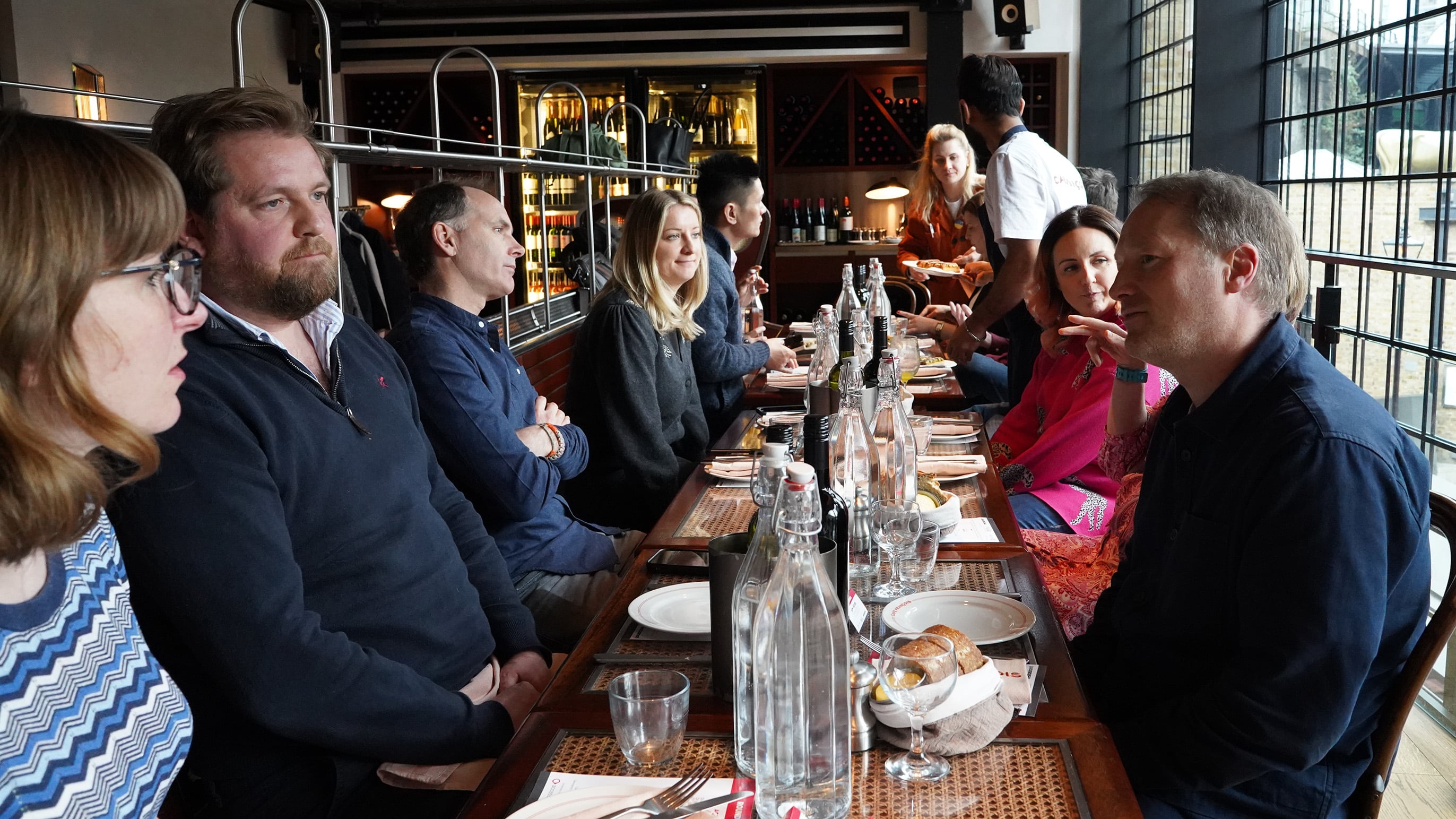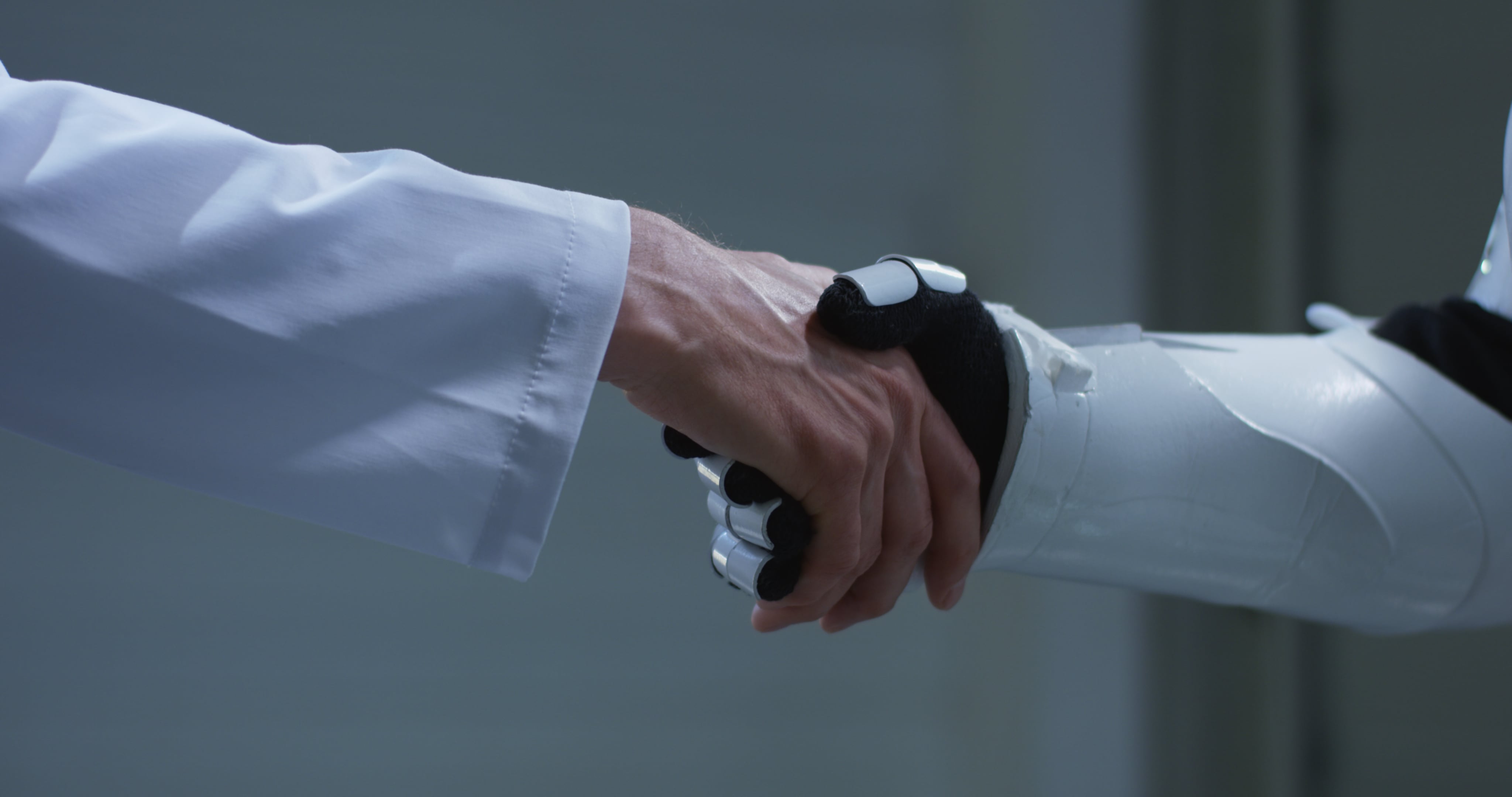The restaurant and pub industries are quietly and cautiously beginning to use AI as a tool for improving efficiency and consistency across operations. From rota scheduling to customer communications and data analysis, AI is starting to reshape how larger hospitality businesses function day-to-day. But while most businesses agree AI is here to stay, there’s a shared recognition of its limitations, particularly around nuance, human tone, and trust.
Those were the key takeaways from a recent roundtable event supported by leading hospitality technology company Access Hospitality, part of The Access Group, and held at recently launched London restaurant Café François.
Attendees from some of the UK’s most successful restaurant and pub groups (see Round the Table, below) noted that AI can enhance internal communications, particularly for multilingual teams, and simplify complex processes such as site planning or guest review responses.
However, there’s wariness about over-automating, especially in people-focused areas like HR or guest experience. Tools like ChatGPT are now regularly being used for drafting documents and analysing customer feedback, but nearly always with a human check in place.
The conversation also tackled integration challenges: many operators are still dealing with disconnected legacy systems, while others are building bespoke AI tools to unify data across platforms. There’s optimism that AI can reduce administrative burden and improve decision-making, but also concern that misuse could lead to depersonalisation, bias, or misplaced reliance.
Whether it’s using AI to screen CVs, forecast labour demand, or program robots to serve dishes and sing Happy Birthday, in nearly all cases the emphasis remained on using tech to support rather than replace people. Ultimately, hospitality’s strength lies in its human connection. Most agree AI should enhance that, not erode it.
Will AI have a transformational role in hospitality?
Mark Selby: There are efficiencies to be made—whether it’s stock, forecasting, people planning, or how we communicate with customers. But we’re all in that slightly hesitant, nervous stage with AI. Can it really understand the nuances, especially when talking to customers?
James Goldsworthy: It’s not going away, is it? It’s here to stay. We’ve got to get on board. And the more data it has to learn from, the better it gets. But at the end of the day, it’s just another tool.
Dom Jacobs: AI is also good for translating what’s in your head into a layout plan for a restaurant - something you can share with a landlord. That process used to be really time-consuming. Now, you can create a good design and a deck easily, and communicate your vision to an interior designer.
MS: It’s easier for smaller hospitality companies. Larger groups are often dealing with a lot of legacy systems.
DJ: We’re also using it to create handover notes that are clearer and easier to understand - especially for team members who don’t speak English as a first language. But you need to be careful. You don’t want everything in your business to read like it was written by a robot. We’re working on a policy at the moment around how AI is used for internal communication.
Greg Hinchliffe-Gould: You can take risks. If it doesn’t work out in six months, you can go back to something simpler. If it goes wrong, you can just strip it out.
Katy Hamilton: Is that a challenge then? Disparate systems not talking to each other? AI could bring all that together and align data.
Joe Medrek: I head up technology for the group. I won’t buy a product anymore unless I can push data into it. Five years ago, the industry’s tech stack was completely different. If you wanted to share data across platforms, it was really difficult. APIs have changed everything. But nothing makes sense until you bring all the data together.
DJ: It feels like an arms race at the moment. Booking platforms, in particular, are investing heavily in AI.
Gemma Eley: All the tech providers are developing their own AI solutions that slot into their systems. I don’t know whether it’ll stay like that or whether we’ll eventually end up with a single AI tool that connects everything together to give operators what they need.
AI is good for translating what’s in your head into a layout plan for a restaurant - something you can share with a landlord
Dom Jacobs
KH: Our aim is to create an AI solution that doesn’t just pull data from our tech but also from third parties, into a single, overall view. We’re on the same journey as everyone else. AI has really accelerated for us over the past eight months. It’s now a big focus. RotaReady, for example, does labour forecasting. We’ve found it to be about 15% more accurate than a general manager doing the scheduling. So, the advantages are definitely there. It’s about understanding how it works for each business and what tools people need.
DJ: There’s no middle ground, really. It either works and it’s beneficial, or it’s a complete waste of time. If you can’t trust what it’s telling you, it’s useless.
Heath Ball: My dentist wears an AI device that records the whole conversation he has with clients. It then summarises the experience. In the old days, he had to write notes after each patient.
GE: There’s some great stuff out there, but there are biases in HR. From a people perspective, you have to be careful. If it’s measuring your communication style and giving you feedback - what’s its baseline for what’s good and what’s not?
JG: The data these things are fed with is so important.
GE: Exactly. Does it just perpetuate the challenges we already have because it’s built on certain societal norms?

The use of AI in HR
GE: At the moment, we’re dabbling with a lot of the tools that exist in the marketplace, such as ChatGPT. We look at all the different tasks we do in a day. HR just seems to be getting busier and busier - we’ve got more and more employee relations cases. We might use AI to draft an outcome letter, for example, or ask it to create a job description. But we always check it. Still, there are definitely more opportunities.
KH: Security is important. The danger of ChatGPT is that you’re putting your data out there. People want and need to keep data within their businesses.
HB: Wages are the biggest controllable cost we have. My managers would be very happy if the computer just created the rota. It stops them getting manipulated by staff who want certain shifts or don’t want certain shifts. They can just say, “Computer says no.”
Victoria Thompson: Do you think the staff would be as positive about that as the managers?
HB: It is what it is. You get caught up in drama. The argument is there - we’re more efficient, we’ll make more money. It’s win-win.
DJ: When it comes to staff rotas, AI should be able to do a good job. It’s not that difficult. Businesses tend to do similar numbers week to week. Staff members just put in their requests and work it out. I’ve never understood why it’s such a big issue every week. I’ve never seen a schedule that can just do it. Nobody hires someone because they’re amazing at doing rotas.
KH: Will teams feel like something has been taken away? Rota software may be more accurate than a GM - but how will GMs feel about that?
GE: We put all of our employees’ comments from our engagement survey into AI - about 1,500 or so. Then we asked it to show us where people were talking about, for example, breaks. It told us that was a trend. But it turned out only three or four people were actually mentioning it. So, it’s always good to sense-check what it comes out with.
Katarina Mizakova: We’re going to use AI to make our handbook shorter and easier to read. We’re also looking at an AI chatbot for the team - something that can help them navigate questions and give quick answers.
DJ: AI should free staff up to give customers the best possible experience. That’s how we’re trying to use it — to allow the team to spend more time with guests.
Our aim is to create an AI solution that doesn’t just pull data from our tech but also from third parties, into a single, overall view
Katy Hamilton
KM: AI can screen CVs, especially for positions where there are a large number of applicants. The way it presents that information can be fantastic. But there’s something in me that’s not entirely okay with it. However, will the person screening the CVs be more objective than the AI? Quite possibly not.
DJ: AI could certainly be used to reduce headcount in a restaurant’s head office, particularly in accounts teams.
KM: I had an employee who used AI for nearly every task. They weren’t that efficient. It was only when I gave them a task that required analytical thinking that I realised something was missing.
Greg Hinchliffe-Gould: As systems become more integrated, fewer people will be needed. But I’d rather drive sales than cut costs.
Using AI to help teams communicate with guests
MS: We’re just starting out with it. I had an argument - well, a conversation - with my ops person this morning about the level of our responses to reviews. There’s a tone of voice you want to have in your business. In the past, when we had five or six sites, I would respond to everything myself because I knew exactly what our tone was. Now, I read some of the responses and I’m like—that’s not what we want. AI will really help with that. It can learn the tone of voice and the preferred words to use. Hopefully, within the next month or two, we’ll have a system in place that picks up reviews. The GM can either do it themselves or go for the AI-generated response and just check it.
HB: Isn’t there a danger that people will realise they’re being replied to by a computer?
MS: It’s quite generic already. The people who respond to these things just take a few points you’ve mentioned and repeat them back to you. I want our tone of voice to be much shorter and more confident. If someone had a great time, the response should be something like, “Happy days, see you soon,” rather than, “I’m so glad you enjoyed a certain dish.”
JG: It’s super helpful when you have a GM for whom English isn’t their first language. And if the review happens to be in French, you can easily reply in French too.
DJ: AI can do a summary of reviews for us. It’s not as good as a human doing it, but it’s fine, and it removes a job. What worries me is that we’re letting machines grade team members through data. As we all know in hospitality, things are often more nuanced than that. We have more data on our guests than ever before. And when you start optimising your business, you slowly start grading guests based on how they behave and how they spend.
HB: “Sorry, you can’t have a table on Friday night - you’re not going to spend enough.”
DJ: That’s already happening in some places. It’s like VIPs, they always get slotted into a table because they spend well. That’s the way it’s always been. It’ll be interesting to see what happens when that’s automated.
JG: Uber already does it. A good Uber rating means you’re more likely to get a taxi.
MS: Eventually we’ll get to a world where AI is marking its own homework. People will write their CVs with AI, and then AI will be reading them. I’d hesitate to let AI reply to a customer without a human sense-checking it. But this is one of the cleanest uses of AI, it can learn very quickly. In a lot of cases, especially in management teams, English isn’t the first language. If it’s a serious case where a customer really wasn’t happy, we’d always check the response to make sure it makes sense.
If someone could make a robot that does the washing up, that would be amazing
Mark Selby
Nicola Imoli: Leaving AI to answer reviews without supervision. One of the good things about AI is that it can learn based on input. It’s important to train AI on how we want it to answer. For a while, you’ll still have an employee looking at the generated responses, deciding whether to accept or reject. But over time, if the model is well built, it will learn why things are rejected and why others are accepted. What we’re finding difficult with the current technology is that we’re having to develop all the infrastructure ourselves. ChatGPT has servers that are learning from all over the world, but ideally you want a system that only learns from your business. We’re building a platform at the moment based on our specific use case. ChatGPT might say it’s learning from Franco Manca reviews, but it’s actually taking reviews from other restaurants too. It’s unclear how that process works.
JG: We’re probably at a point where we could let AI reply automatically. But we don’t want to do that because the teams come from the pubs. We want them to read the review and engage with it. If AI just understands everything in the background, the team will never fully understand why guests have complaints.
NI: But could you not use AI to summarise reviews into bullet points and identify key weak areas?
General uses of AI in hospitality
NI: A good example of AI being useful is in departments that either aren’t familiar with, or don’t have access to, our core sales systems. Now they can ask a simple question like “How many drinks have we sold across our delivery channels in the last three months?” and get an answer quickly. They don’t need to go through a data analyst anymore. Instead, they can use our BI tool, type in the question, and the system understands what needs to be pulled. It saves a huge amount of time and workload for analysts.
Arthur Zhang: The robots we use in our restaurants are there to reduce labour. We feed in mapping data for the restaurant and program key functions, like serving dishes or even singing the birthday song. It’s been really helpful. They also take dirty dishes back to the KP area. Right now, we’ve rolled them out in three of our four UK locations, and so far, it’s working well. Our goal is to reduce workload for the team, not replace them. There’s no chance robots will replace chefs in the next five to 10 years, and that’s definitely not our intention. Hospitality is about the personal touch. But the robots have become a real talking point. They’re on TikTok, Instagram, in the press - kids even come in just to see them. It’s not strictly AI, but it sits in that space because they do interact with guests. One even says, “Hi, you’re in my way. There’s definitely a labour-saving element. Each unit costs around £12,000–£15,000 which, when you compare it to a waiter’s annual salary, is quite reasonable. And they can work 24/7 if needed. The idea is to give our team more time to actually connect with guests. Centre Point is a big site, and our staff do a lot of walking, so the robot helps ease that.
MS: If someone could make a robot that does the washing up, that would be amazing. It’s one of the least popular jobs. Something that could load the dishwasher and then stack the plates back on the shelves, that’s surely possible at some point.
HB: I love the idea of a robot that sings Happy Birthday. That’s something a lot of staff dread doing.
Round the Table
Heath Ball, owner, The Red Lion & Sun
Gemma Eley, people director, Hawksmoor
James Goldsworthy, head of digital and creative, Punch Pubs
Katy Hamilton, marketing director, Access Hospitality
Greg Hinchliffe-Gould, commercial director, Caravan Restaurants
Nicola Imoli, growth manager, Fulham Shore
Dom Jacobs, managing director, The Cadogan Arms
Joe Medrek, IT director, Wells & Co.
Katarina Mizakova, head of people, Thesleff Group
Mark Selby, co-founder, Wahaca
Victoria Thompson, head of marketing, The Access Group
Arthur Zhang, brand and marketing manager, Din Tai Fung


